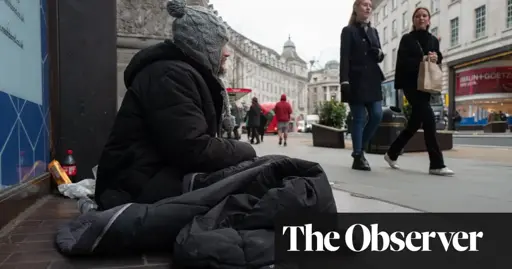The new study, funded by the government and carried out by King’s College London (KCL) and the homelessness charity Greater Change, will recruit 360 people in England and Wales. Half will continue to get help from frontline charities. The other half will get additional help from Greater Change, whose support workers will discuss their financial problems then pay for items such as rent deposits, outstanding debts, work equipment, white goods, furniture or new clothes. They do not make direct transfers to avoid benefits being stopped due to a cash influx.
Professor Michael Sanders, who runs KCL’s experimental government unit, said: “What we’re trying to understand is the boundary conditions for cash transfers. When does it work? For whom does it work? What are the amounts you need to give people in order to make it work?”
One of the first cash transfer schemes was in Mexico in 1997 and since then they have been used around the world. But most evidence is from low and middle-income countries, and there has been opposition from politicians and the public, who often believe people will spend the money unwisely. Last year researchers in Canada found that giving CA$7,500 (£4,285) to 50 homeless people in Vancouver was more effective than spending money housing them in shelters, and saved around CA$777 (£443) per person.



George Carlin hit this on the head. If you don’t have the homeless there’s no one to scare the poor into working.
For the wealthy, It’s important to keep people one paycheck away from the street. If you pay people too much, they have options. When people have options, they don’t blindly obey. If people know they can’t ever hit the street, they will demand more from the rich to wipe their asses.
This is why slavery exists. As long as you put food in the trough, they are alive to serve.